Countries in the Region Committed Themselves to Moving Towards a New Development Pattern: The Care Society
Work area(s)
Today the XV Regional Conference on Women in Latin America and the Caribbean, organized by ECLAC in coordination with UN Women, concluded in Buenos Aires.
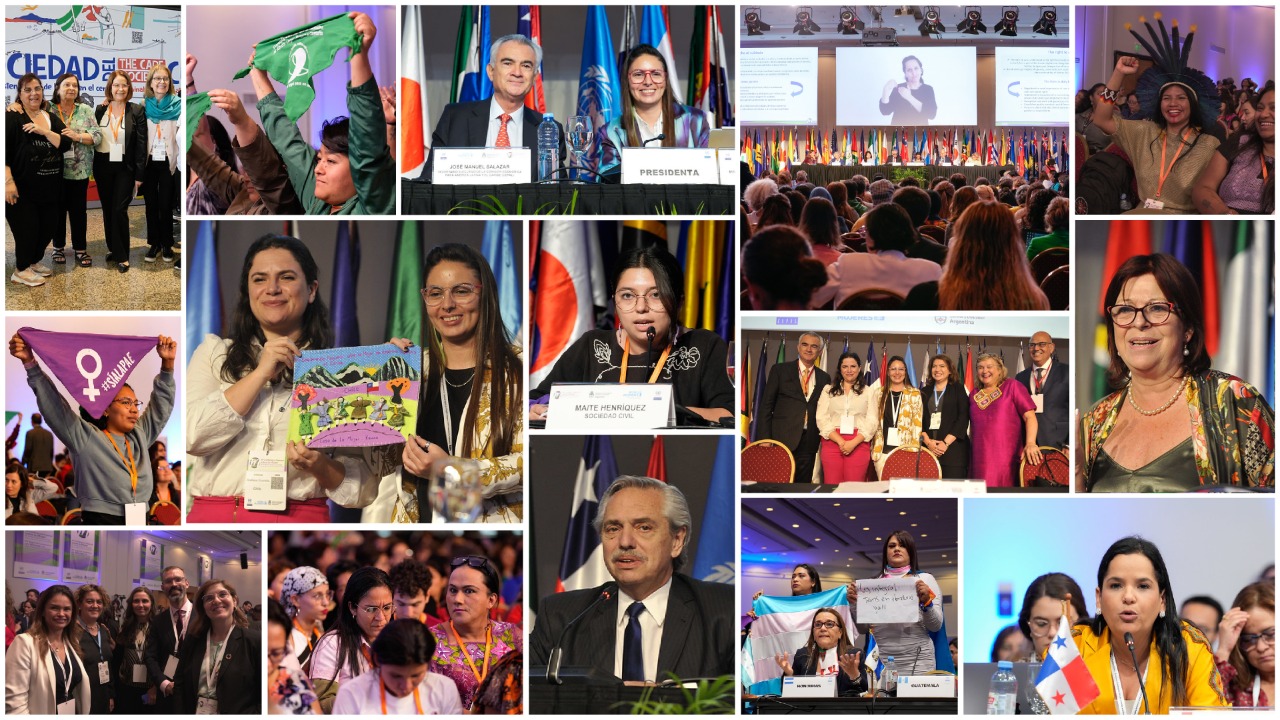
Representatives of the countries participating in the XV Regional Conference on Women in Latin America and the Caribbean, which concluded today in Argentina, committed themselves to “adopting regulatory frameworks that ensure the right to care through the implementation of comprehensive care policies and systems from a gender, intersectional, intercultural and human rights perspective.”
In the Buenos Aires Commitment, they recognize “care as a right to provide and receive care and to exercise self-care based on the principles of equality, universality and social and gender co-responsibility, and therefore, as a responsibility that must be shared by people of all sectors of society, families, communities, businesses and the State.”
The United Nations’ main regional, intergovernmental forum on women’s rights and gender equality, which celebrates its 45th anniversary this year, was inaugurated on Monday in Argentina’s capital and brought together delegates from 30 countries in Latin America and the Caribbean and other regions, in addition to representatives of 17 United Nations agencies and 14 intergovernmental organizations. They were joined by parliamentarians from 15 countries in the region and more than 750 members of civil society. In total, 1,168 people participated.
Speaking at the closing session were Raúl García-Buchaca, Deputy Executive Secretary for Management and Programme Analysis of the Economic Commission for Latin America and the Caribbean (ECLAC); María-Noel Vaeza, Regional Director for the Americas and the Caribbean of the United Nations Entity for Gender Equality and the Empowerment of Women (UN Women); Ayelén Mazzina, Minister for Women, Gender and Diversity of Argentina; and Amina J. Mohammed, Deputy Secretary-General of the United Nations (by video).
“We welcome the important political commitment agreed upon in Buenos Aires, which will allow us to move forward on concrete policies to make women’s rights and autonomy a reality, throughout the region and in all its territories, and which also enables us to keep strengthening the Regional Gender Agenda, as we have done for the last 45 years. With the conviction of renewing our reflections in light of the cascading crises that challenge us, ECLAC proposes continuing the feminist efforts aimed at transformation and a profound civilizational change: the care society,” said Raúl García-Buchaca, Deputy Executive Secretary of ECLAC, emphasizing that “the financing of care policies is essential for eliminating gender inequalities and guaranteeing the rights of all women.”
“It is during crises that we must dare to dream. This gathering in Buenos Aires has given unprecedented impetus to a new development model that we have been promoting from within feminist and women’s organizations, international bodies and parliaments: the care society. We are confident that States and the private sector will continue to join this major effort to amend historical inequalities, help care for the planet, and finally, grow opportunities for the entire society, and especially women in all their diversity: indigenous, rural, Afro-descendent women, women with disabilities, girls, adolescents and older adult women, migrants and refugees, those from the collective of diversity and those who live with HIV,” said María-Noel Vaeza of UN Women.
Minister Mazzina, meanwhile, indicated that “as an Argentine and a feminist, I am proud that the Buenos Aires Commitment is joining the Regional Gender Agenda. We reach this day having journeyed widely throughout the country, with the conviction of collectively building a shared position that would represent all voices. We did this thanks to the cooperation of all of you, who nourished each one of the debates that led to these agreements with diversity.”
The country delegates present in Argentina acknowledged the work carried out by the Gender Equality Observatory for Latin America and the Caribbean and welcomed the Conference’s position document, The care society: A horizon for sustainable recovery with gender equality, as well as the publication Breaking the statistical silence to achieve gender equality by 2030: implementing the information systems pillar of the Montevideo Strategy for Implementation of the Regional Gender Agenda within the Sustainable Development Framework by 2030, both prepared by ECLAC.
The document Financing care systems and policies in Latin America and the Caribbean: contributions for a sustainable recovery with gender equality, prepared by ECLAC and UN Women, was also presented at the gathering.
In the Buenos Aires Commitment, countries agreed to “design, implement and evaluate macroeconomic policies, particularly fiscal policies (income, spending and investment), from a gender equality and human rights perspective to safeguard the progress made and mobilize the maximum available resources with a view to increasing sustainable public investment over time in care policies and infrastructure, in order to guarantee universal access to affordable and quality care services.”
Furthermore, the national representatives committed themselves to “ensuring that fiscal adjustment measures or budget cuts aimed at addressing economic slowdowns are in line with the principles of human rights and non-discrimination, avoiding in particular cuts to programs and support that would increase poverty rates among women and their burden of unpaid and care work.”
The resolution also encourages the governments of Latin America and the Caribbean and of other regions, developed countries, United Nations agencies, funds and programs and other relevant stakeholders to contribute financial resources to ensure the sustainability of the Regional Fund in Support of Women’s and Feminist Organizations and Movements.
Finally, the countries thanked the people and Government of Argentina for hosting the XV Regional Conference and welcomed the Government of Mexico’s offer to host the next Regional Conference on Women in Latin America and the Caribbean, in 2025.
The programme of the XV Regional Conference on Women included the launch of several documents with policy recommendations, a high-level debate on the care society, thematic panels on the financing of care and caring for the planet, and a roundtable on co-responsibility for care, in addition to 30 side events, a Parliamentary Forum and a Feminist Forum.
Related event

XV Regional Conference on Women in Latin America and the Caribbean
<p>The fifteenth session of the Regional Conference on Women in Latin America and the Caribbean was held in Buenos Aires from 7 to 11 November 2022.</p>
Related content
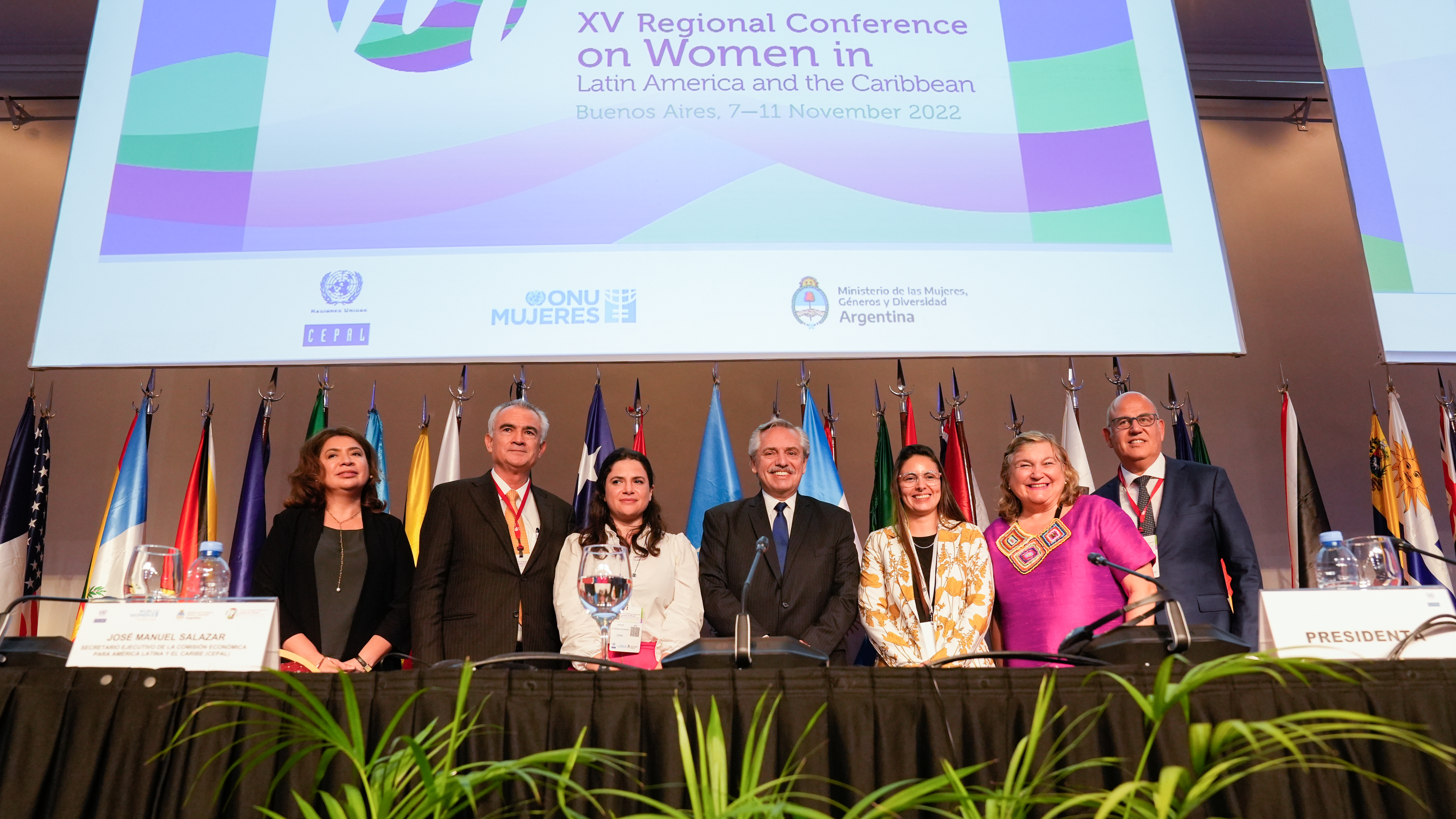
Latin America and the Caribbean Needs to Move Towards a Care Society for a Sustainable Recovery with Gender Equality
Argentina’s President, Alberto Fernández, led today the opening ceremony of the XV Regional Conference on Women in Latin America and the Caribbean, which will be held through Friday in Buenos Aires.
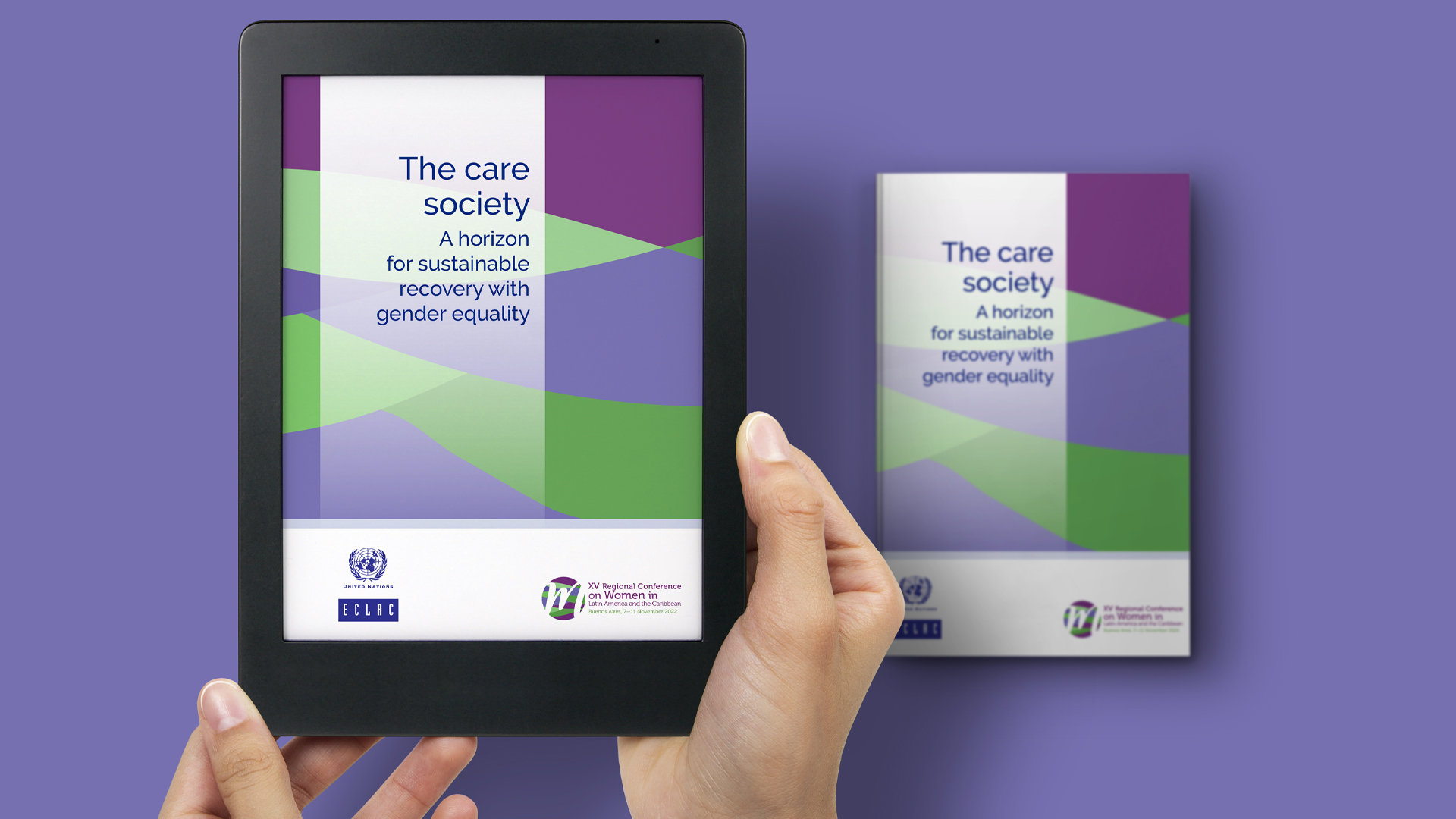
ECLAC: It is Time for Transformational Changes, Like the One Proposed by the Care Society
The regional organization’s Executive Secretary, José Manuel Salazar-Xirinachs, presented today the main document of the XV Regional Conference on Women in Latin America and the Caribbean, which is…
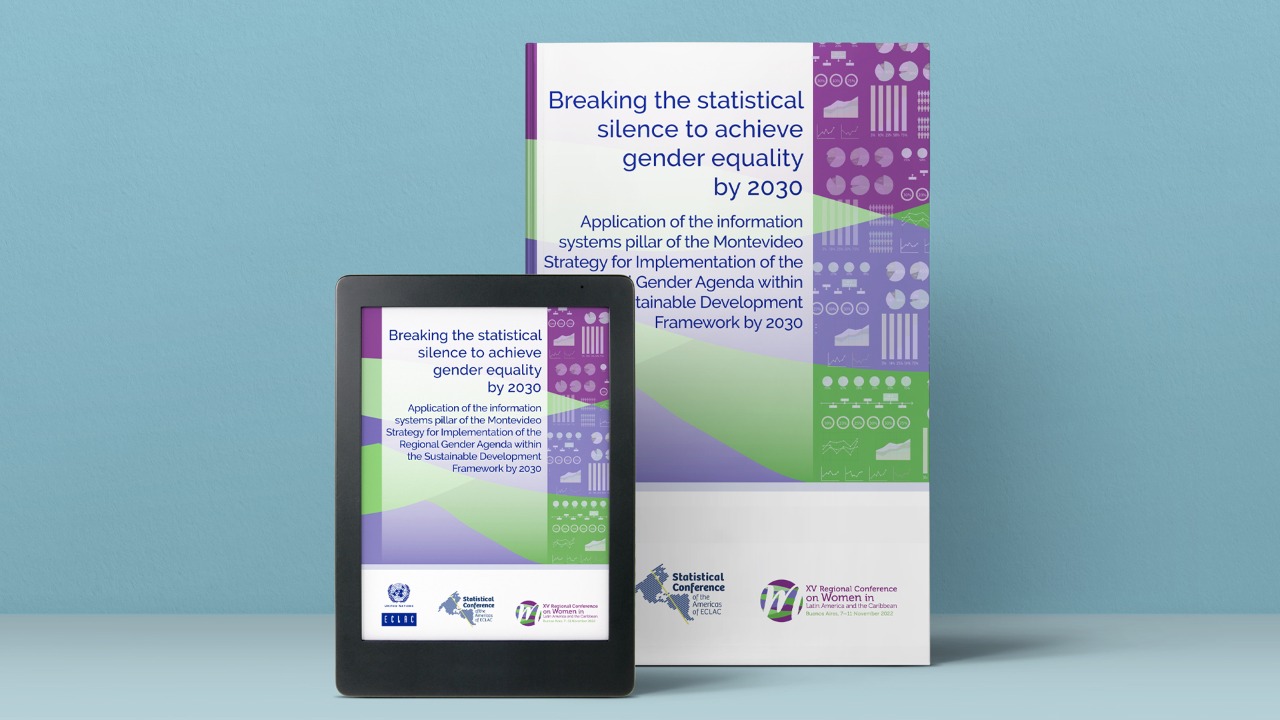
Achieving Gender Equality and the Care Society Requires Transforming Data into Information, Information into Knowledge, and Knowledge into Political Decisions
New document by ECLAC was presented today in the framework of the Fifteenth Regional Conference on Women in Latin America and the Caribbean, which is being held through Friday, November 11 in Buenos…
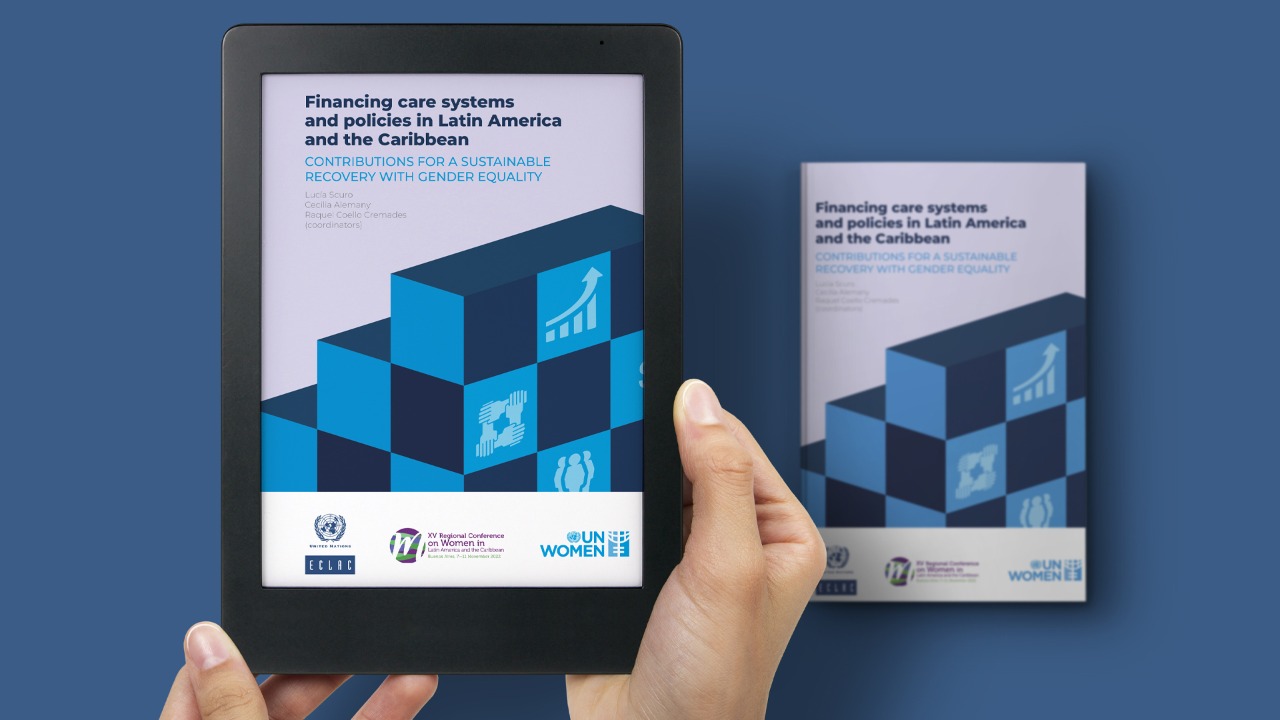
Importance is Stressed of Investing in Comprehensive, Public Care Policies and Systems Aimed at Achieving Gender Equality and Promoting Their Financial Sustainability
In the framework of the XV Regional Conference on Women in Latin America and the Caribbean, which is taking place in Buenos Aires, the joint ECLAC-UN Women document “Financing care systems and…
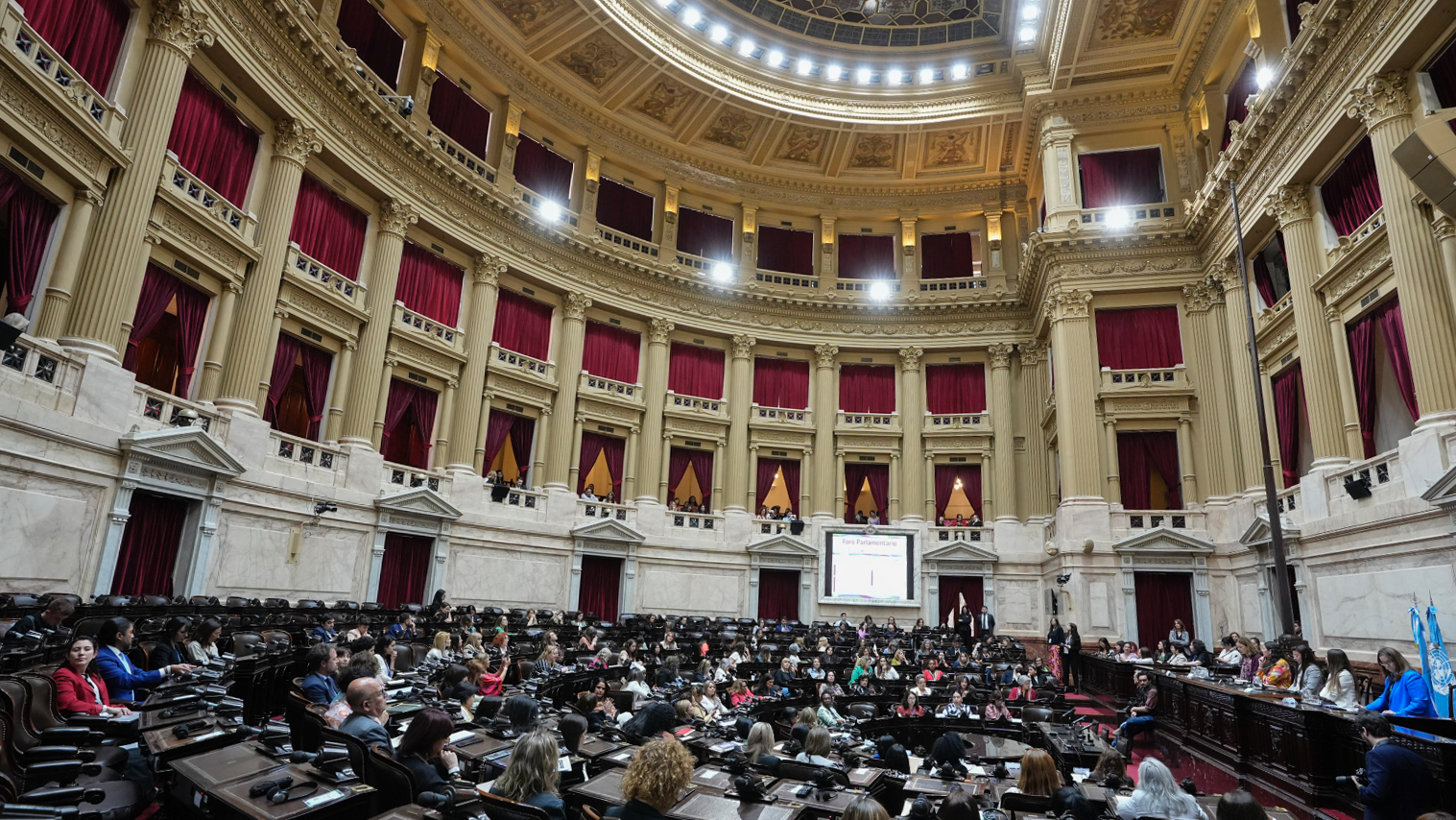
Destacan rol clave de los parlamentos para avanzar en la construcción de la sociedad del cuidado
El Foro Parlamentario, realizado en el marco de la XV Conferencia Regional sobre la Mujer de América Latina y el Caribe, culminó hoy en Buenos Aires, Argentina.
The care society. A horizon for sustainable recovery with gender equality
Presentation of the position paper of the XV Regional Conference on Women in Latin America and the Caribbean, by José Manuel Salazar-Xirinachs, Executive Secretary of ECLAC.
Subregional headquarter(s) and office(s)
Related link(s)
Country(ies)
- Latin America and the Caribbean
-
Argentina
Contact
Public Information Unit
- prensa@cepal.org
- (56 2) 2210 2040
